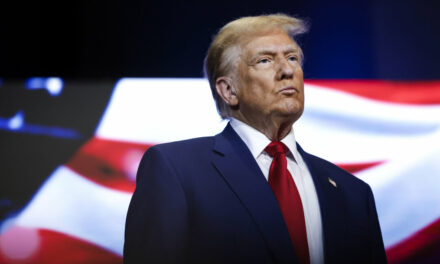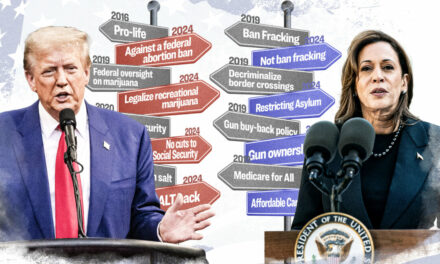We support our Publishers and Content Creators. You can view this story on their website by CLICKING HERE.
State officials said that state laws define who can be present at voting sites and that the list does not include federal personnel.
Missouri state officials filed a lawsuit on Monday to prevent the U.S. Department of Justice (DOJ) from sending federal personnel to monitor polling places on Election Day.
The legal action, filed by Secretary of State Jay Ashcroft and the Missouri Attorney General’s office, seeks to block what Ashcroft describes as “illegal interference” by the federal government in Missouri’s elections.
The department’s press release indicated that personnel from the Civil Rights Division, other divisions, U.S. Attorney’s offices, and federal observers from the Office of Personnel Management would be deployed.
Ashcroft said that Missouri law permits only certain individuals inside polling places, and federal monitors are not among them.
“This is a repeat performance,” Ashcroft said. “Two years ago, we met with the DOJ. We showed them the law and explained that they have no jurisdiction to interfere in Missouri elections. Now they are doing the same thing; trying to go through the back door by contacting local election officials and making false jurisdictional claims for access rather than contacting my office directly.”
The current lawsuit, filed in the United States District Court for the Eastern District of Missouri, names Attorney General Merrick Garland, Assistant Attorney General Kristen Clarke, and the DOJ as defendants.
“DOJ’s actions are unexplained and ultra vires, overstepping statutory authority under federal voting-related laws,” the lawsuit states.
The state seeks a declaration that the DOJ’s planned monitoring is unlawful and an injunction to prevent federal personnel from entering Missouri polling places.
Ashcroft said that Missouri has a leading reputation for election integrity, citing evaluations by organizations such as the Heritage Foundation.
“Rather than contaminate the process—like in Virginia and Alabama—the DOJ should consider the Show-Me State as the example for other states when it comes to sound non-partisan elections,” he said in the statement.
The DOJ maintains that its monitoring is part of enforcing federal voting rights laws, including the Voting Rights Act and the Americans With Disabilities Act (ADA).
The department’s press release states that Civil Rights Division personnel will be available to receive complaints related to possible violations of federal voting rights laws throughout Election Day.
In an emailed response to The Epoch Times, the DOJ declined to comment on the litigation but pointed to a 2019 agreement between the department and a local election board in Missouri as background.
Federal investigators found that numerous polling places in St. Louis were not accessible to voters with disabilities due to architectural barriers like stairs and narrow doorways, according to the agreement.
As part of the settlement, the city’s election board agreed to make polling places accessible, either through permanent modifications or temporary measures on Election Day.
Additionally, the agreement stated that “The Board will cooperate fully with the United States’ efforts to monitor compliance with this Agreement, including but not limited to providing the United States with timely access to polling places (including on Election Day).”

 Conservative
Conservative  Search
Search Trending
Trending Current News
Current News 







